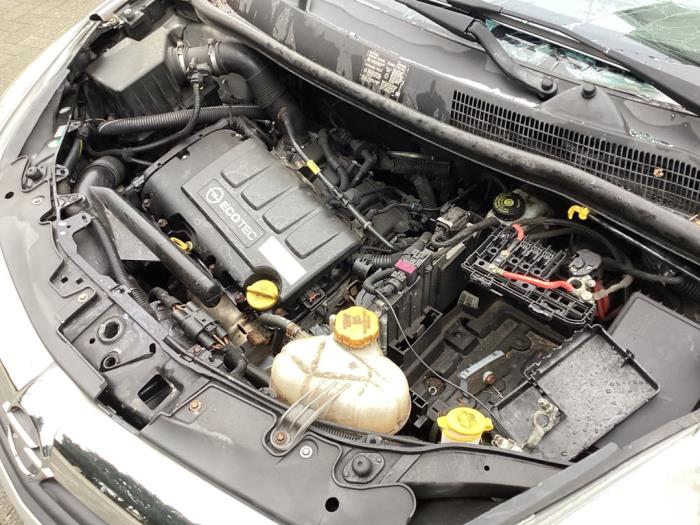Engine Buying Specialist Tips on Selecting the Right Engine for Your Particular Demands
Choosing the best engine for your particular demands includes a complex interaction of aspects that exceed plain horsepower figures. From power output to fuel effectiveness, the decision-making procedure can be daunting. Recognizing the subtleties of engine types, sizes, and their compatibility with your vehicle is crucial. Nonetheless, there are skilled pointers that can aid navigate this surface with self-confidence. By diving into the intricacies of power versus effectiveness, reviewing gas ratings, and budgeting for long-term expenses, one can truly enhance their engine selection.
Power Vs. Efficiency: Finding the Balance
When choosing an engine, it is crucial to strike an equilibrium in between power and effectiveness to meet your certain requirements successfully. Power refers to the engine's ability to create power for propulsion, establishing variables like velocity, lugging ability, and total performance - Opel Corsa 1.4 Engine Price. On the various other hand, efficiency relates to how well the engine uses gas to generate power, impacting aspects such as gas economic climate and ecological kindness
Accomplishing the right equilibrium in between power and efficiency is essential since an engine that is as well powerful might consume extreme fuel, resulting in greater operating expense and unnecessary pressure on the atmosphere. Alternatively, an engine that prioritizes performance over power may cause sluggish performance, particularly in demanding scenarios like towing hefty loads or driving uphill.
To make an informed decision, think about factors such as your common driving problems, the designated use the vehicle, and your personal preferences. By examining your top priorities and demands, you can choose an engine that strikes the best balance between power and effectiveness, making sure optimal efficiency while lessening ecological impact and operating expense.
Understanding Engine Size and Kind
To additionally improve the choice process of an engine that strikes the optimum balance in between power and performance, it is important to dive into the ins and outs of understanding engine dimension and kind. Engine dimension refers to the overall volume of air and gas that can be pressed via the engine cylinders.
Additionally, engine kind plays a critical duty in identifying the efficiency features of an engine. Typical engine kinds include inline engines, V engines, and rotary engines, each with its one-of-a-kind advantages and downsides. The engine kind impacts factors such as the engine's dimension, weight circulation, and power distribution. Comprehending the interplay between engine size and kind is essential in selecting an engine that straightens with your specific requirements and priorities, whether it be power, performance, or a balance of both.

Consider Your Vehicle's Requirements
If you are looking for an engine for a sturdy truck that will be used for towing, you will require a powerful engine with high torque capacities. On the other hand, if you are selecting an engine for a portable vehicle primarily used for city commuting, fuel effectiveness may be a much more important aspect to take into consideration.
Furthermore, the surface on which the automobile will largely run should affect your engine option. If you frequently drive in mountainous or uneven areas, a robust engine with excellent climbing power will certainly be essential. On the other hand, for level surfaces, an extra fuel-efficient engine may be sufficient. By straightening the engine specifications with your automobile's demands, you can guarantee that your car runs efficiently and satisfies your performance assumptions.
Reviewing Fuel Effectiveness Scores
Assessing gas performance rankings is an essential facet of choosing the right engine for your automobile, making certain cost financial savings and environmental sustainability. Gas efficiency ratings, normally determined in miles per gallon (MPG) for gasoline engines or kilowatt-hours per 100 miles (kWh/100 miles) for electric engines, show how far a lorry can travel on a certain amount of fuel or power. Greater MPG or reduced kWh/100 miles worths symbolize extra reliable engines, equating to reduced gas prices and reduced carbon exhausts.
In addition, contrast various engine alternatives Your Domain Name within the exact same car course to recognize the most cost-effective choice. Factors such as engine dimension, weight, the rules of aerodynamics, and crossbreed or electrical abilities can all affect gas performance.
Budgeting for Long-Term Expenses
Tactically preparing for long-lasting costs is critical when picking an engine, making certain monetary sustainability over the car's life-span. While the initial purchase rate of an engine is a substantial factor, it is critical to consider the long-term costs linked with maintenance, fixings, and fuel intake.
In addition, investigating the availability and cost of replacement parts for the picked engine is crucial in budget plan preparation. Engines with cost effective and easily offered parts can dramatically impact lasting upkeep expenses. In addition, thinking about the engine's toughness and anticipated lifespan can assist prevent unforeseen substitute expenses in the future. By thoroughly budgeting for these long-term costs and factoring them right into the decision-making process, individuals can pick an engine that not just meets their immediate needs but likewise continues to be affordable throughout its life-span.
Conclusion
In verdict, choosing the right engine for your specific demands requires stabilizing power and performance, comprehending engine dimension and kind, considering your automobile's demands, reviewing gas performance ratings, and budgeting for long-term prices. By very carefully thinking about these aspects, you can make certain that you pick an engine that fulfills your needs and offers ideal performance for your lorry.
To even more improve the option process of an engine that strikes the ideal equilibrium between power and performance, it is vital to dive right into the details of comprehending engine size and type. Engine size special info refers to the total quantity of air and gas that can be pushed via the engine cyndrical tubes. Typical engine types include inline engines, V engines, and rotating engines, each with its one-of-a-kind benefits and disadvantages. Understanding the interplay between engine dimension and kind is vital in choosing an engine that see post lines up with your certain needs and concerns, whether it be power, effectiveness, or an equilibrium of both.
